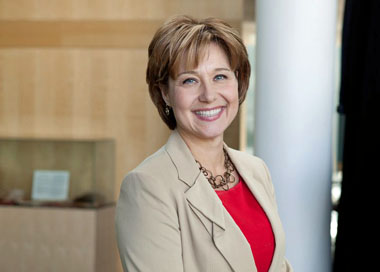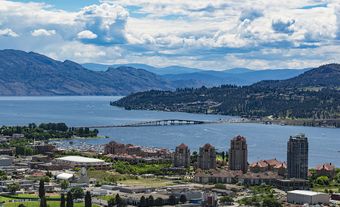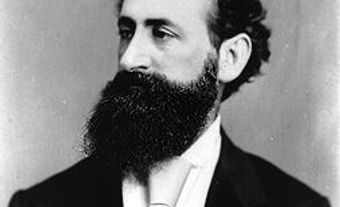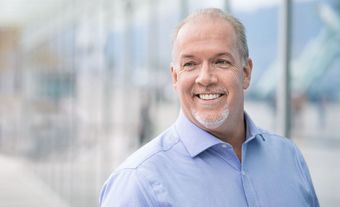
Early Life and Family
Christy Clark was born and raised in Burnaby, British Columbia, the daughter of a counsellor, Mavis, and a high school teacher, Jim. Her family was modest and middle class, with Anglican values and parents who preached the kind of fiscal conservatism that would later become a hallmark of Clark’s own policies.
Her love of politics came from her father, Jim, who ran unsuccessfully for provincial office three times (for the BC Liberals, at a time when the party was not a major factor in politics), and who involved his daughter in his campaigns. He fostered Clark’s skills in the cut and thrust of political debate — another defining characteristic of her later political success.
“I was a little baby on my dad’s knee when [he] ran the first time. He got me doing this. My dad really inspired me,” she said. “It wasn’t that he was a political candidate, it was that around our dinner table my dad was a school teacher and he believed in debate and discussion. We would all sit around and we all had these vastly different opinions and my dad was all about, ‘Bring it on.’”
Clark credited her father’s long teaching career, and the stability of a steady job, for helping him in his struggle with depression and alcoholism. It shaped her later view that job creation was one of the single most important goals of a government.
Assault
When she was 13, in 1978, Clark was dragged into the bushes by an unknown man while walking to her job as a dishwasher at a Burnaby restaurant. Clark eventually escaped. She didn’t speak of the attack for 37 years, until publishing an op-ed in The Vancouver Sun newspaper in 2016, explaining how she hoped that going public as premier would make more women comfortable talking about sexual violence.
“I’m not speaking out for sympathy; I don’t need it,” she wrote. “I am speaking out because as premier of British Columbia and BC’s first elected female premier, I am privileged to have a public platform. I want women who have never said anything about sexual violence in their lives to know they are not alone.”
Education
Clark graduated from Burnaby South Secondary School and attended Simon Fraser University (SFU), as well as the University of Edinburgh in Scotland and Paris-Sorbonne University — though she did not receive degrees from any of the institutions.
She was active in student politics at SFU, including as president of the campus Young Liberals club. In 1989 she was elected president of the Simon Fraser Student Society, until being disqualified shortly afterwards for having broken campaign rules.
Clark went on to serve as a political staffer for the Liberal Opposition in the legislature in Victoria, and federally for the Liberal Party as well.
At SFU, Clark also met her future husband, Mark Marissen, who at that time was a youth leader for then-federal Liberal leadership hopeful Jean Chrétien. Marissen and Clark would work for the federal Liberals together in Ottawa. They married in 1996 and had a son together in 2001. The couple separated in 2009 and later divorced, but Marissen remained a fierce public defender of his ex-wife during her entire political career.
Early Provincial Politics
Clark was first elected to the BC legislature as a Liberal in 1996 in the riding of Port Moody-Burnaby Mountain, and quickly earned a strong reputation as an opposition critic.
In 2001, when the Liberals formed government under Premier Gordon Campbell, she was named education minister and deputy premier.
In 2002, Clark presided over the province’s decision to strip from teachers’ contracts their bargaining rights for class size and composition (a decision that would ultimately be overturned by the Supreme Court of Canada in 2016 when she was premier).
Around the same time, Clark became the first politician in BC history to have a baby while serving in Cabinet. She took her new son, Hamish, to work with her at the legislature, sometimes nursing him during breaks from Cabinet meetings.

In 2004, Campbell appointed Clark as minister of children and family development, a difficult post that appeared to sideline her political ambitions. In 2005, she quit politics, saying she wanted to spend more time with Hamish. She then ran unsuccessfully for the nomination of a right-leaning municipal party, the Non-Partisan Association, in the upcoming Vancouver mayoral election.
In 2007, she began hosting her own radio program, the Christy Clark Show, in Vancouver on CKNW. She excelled as host, mixing her considerable skills as both a communicator and critic. Clark has said her years in radio were an important period, helping her refine the public voice she’d later use as premier.
Premier: First Term
In 2010, Clark sought the leadership of the BC Liberal Party after Campbell announced he was stepping down, following his government’s botched introduction of the harmonized sales tax (HST). Clark portrayed herself as a political outsider, defeating three Cabinet ministers by promising to refresh the party, as a way of dealing with public anger over the HST. She won the vote on 26 February 2011, and as leader of the governing party in the legislature, became BC’s 35th premier. She would later win a by-election in the riding of Vancouver-Point Grey.

It was not smooth sailing at first. Clark inherited a divided Liberal caucus, in which only one MLA had supported her leadership bid. “It was the hardest thing I’ve ever done, going to work every day at this incredible job and confronting people — about half the people at the time — who were openly hostile to me,” Clark said.
The Liberals limped into the 2013 election. However, Clark’s slogan for a “debt-free BC,” and promises of a massive financial windfall from a new liquefied natural gas (LNG) industry, caught the public’s attention — in contrast to the cautious and modest campaign by the New Democratic Party (NDP). Amid predictions of an NDP victory on 14 May, the Clark Liberals stunned observers by not only winning, but growing their majority hold on government.
Clark lost her Vancouver-area riding but won a new seat in Kelowna West in a by-election. Meanwhile, her promise of an LNG industry largely failed to materialize.
Premier: Second Term
Clark’s overall vision as premier remained one of fiscal conservatism, with tight control over expenditures balanced by small-scale tax credits where affordable. She promised small government, and a reduction in red tape and regulations to spur private-sector economic growth.
She earned criticism for her social policies, such as continuing a 10-year freeze on welfare rates and being slow to increase funding for child welfare, disability and other social programs. Clark viewed herself as a modern-day W.A.C. Bennett, the legendary Social Credit premier who governed British Columbia from 1952 to 1972 and whose ambitious highway and hydroelectric dam construction opened up and powered the province for decades. Both had ever-present smiles and a populist touch that could read the mood of the electorate.
In that vein, she pushed forward long-delayed plans for the $9-billion Site C dam, southwest of Fort St John, which was opposed by some local First Nations and landowners, but which Clark said was necessary for BC’s future power needs.
Clark also accumulated scandals as premier, including growing concern over cash-for-access party fundraisers involving her and her ministers, as well as a $50,000 top-up to her salary from the Liberal Party that she was forced to cancel.
Defeat
Clark steered the Liberals into the 9 May 2017 provincial election flush with cash and with a well-organized campaign team. But the public was less impressed. On election night Clark became the first woman re-elected as premier in Canadian history; however, her party lost ground, emerging one seat shy of the 44 required for a majority government.
With 43 seats in an 87-seat legislature, Clark watched as her opponents (the NDP with 41 seats and the Greens with three) conspired to engineer her defeat. With their combined 44 seats, they voted down the Liberal government on a confidence motion in the legislature on 29 June 2017.
Clark insisted she would not ask Lieutenant-Governor Judith Guichon to call a new election, because the public didn’t want one. But Clark later admitted that during their meeting, following the defeat of the Liberal government, she asked Guichon to dissolve the legislature and send voters back to the polls. Guichon refused, and instead called upon NDP leader John Horgan to form a government.
Not since 1883 had a British Columbia government been voted down on a matter of confidence and replaced by an opposition party in a sitting legislature, rather than through an election. Clark at first indicated she would continue to serve as the MLA for Kelowna West and Opposition Liberal leader. However, she resigned both her party leadership and seat on 4 August 2017.
Clark is now a senior advisor at law firm Bennett Jones. She is also chair of the board for Roots of Empathy and an associate member of the InterAction Council.
Women and Politics
In 2019, Christy Clark participated in No Second Chances, a special project by Canada 2020, an independent think tank. The project included interviews and podcasts with the 12 women who have served as first ministers — 11 premiers and Canada’s only female prime minister to date, Kim Campbell. On 19 June 2019, these former first ministers released an open letter to Canadians, emphasizing the importance of women’s participation in politics. “Until we achieve the full and equal participation of women in politics, we will not reach our full potential as a nation.”

 Share on Facebook
Share on Facebook Share on X
Share on X Share by Email
Share by Email Share on Google Classroom
Share on Google Classroom


